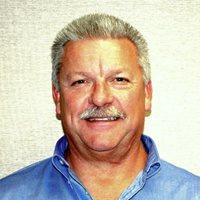By Stephanie Stevens

Retired firefighter Jeff Beeler, now a highly-respected OSHA instructor, has been keeping people out of harm's way since 1975. Over the years, he's come to believe that one of the best pieces of advice for employers to save time and money is to invest in safety training for their employees.
While it may seem odd – spending money on safety to save money – investing in workplace safety education helps companies manage costs by preventing unnecessary expenditures. Instead of suffering through the costly results of accidents, lawsuits, medical bills and time lost on the job, Beeler said businesses would do better to focus on prevention.
And he's careful to note, practicing safety is not as simple as relying on "common sense."
"We can't expect that people know what to do to be safe or how to do it unless we teach them," he says. To react quickly and correctly isn't innate.
 How did you get into safety training?
How did you get into safety training?
As a firefighter in La Mesa, I was on the city safety committee and responsible for developing and implementing safety programs for the fire department. I got to be pretty competent in many safety requirements and was asked for help from other cities and agencies, including providing training. I decided to start my own company, and that became my second career.
Were you the kid who wanted to grow up to be a firefighter?
During my senior year of high school, I had the realization that I had no real prospects for the future. I was smart and hardworking, but I had no career goals or plans to go to college. I wandered into a military recruitment office, and the recruiter convinced me to take the aptitude test to see what jobs I qualified for. I took the test, and when I got the results, I looked at the list of jobs, saw firefighter as an option. I said to myself, "that could be cool to do for four years," so I enlisted in the U.S. Air Force as a firefighter.
I found that I had a high aptitude for the job, and it became my passion. I advanced to Captain and was also involved in federal, state, and local programs and activities, including a FEMA Urban Search and Rescue Team position for 16 years. As a Rescue Team Manager, I responded to large disasters around the U.S., such as the World Trade Center attack.
Is it difficult to walk around and see people doing things without proper safety measures?
Because I am so familiar with how workers have become injured, ill, or have died on the job, I tend to be very concerned when I see someone not using appropriate safety measures. I know what might happen and how it will affect so many. Not only does the worker suffer, but the family, the company, and others. I have seen lots of ugly results over the years, including falls from heights, crushing injuries, chemical burns, fires, electrocution, and more.
Have you ever stopped to correct someone?
Ha! I have said something many times, usually out of concern for the person(s) involved. If I know they could get hurt or killed from what they are or aren't doing, I will often say something. I have had more serious encounters when it involves a manager or supervisor who is putting their employees in harm's way and refuses to acknowledge what they are doing is unsafe. I would feel terrible if I didn't say anything and found that someone got injured or died when I could have helped change the dynamics.
Why doesn't "common sense" work when it comes to safety regulations?
The truth is, there is no such thing as common sense. We all come from different backgrounds and various experiences. What we know and can do is largely based on our past. As an example, I am very mechanically inclined and can figure most mechanical things out fairly easily. In recent years, people have not grown up having the same experience.
A lot of our workforce comes from other countries, especially in construction and agriculture, with different backgrounds and cultures than ours. Some U.S. workers will think of those people as not having common sense because they don't see safety issues the same way many of us do now in the U.S. That's why safety training is so critical.
What is the biggest misconception about safety?
Many companies take safety seriously because they care about their employees and about looking professional to clients. They also realize the cost savings that comes from safety. On the other hand, some companies have their head in the sand and ignore safety. They may spout reasons like it's too expensive, not necessary for them, or they have never had anyone injured, but that often comes from ignorance.
It costs money to hire safety professionals, develop safety programs and policies, provide constant training, engineer and retrofit equipment to operate safer, provide personal protective equipment, etc.
In contrast, it costs a great deal to have a workplace accident; The cost of providing medical care, loss of a worker for a time, increased worker's comp and insurance premiums, OSHA fines, civil lawsuits, or the loss of business because of a poor safety record is not acceptable.
What are some of the most common (or even some unexpected) occupations for safety experts?
Most sizable companies will have at least one safety professional position. If someone has a background in safety and is a subject matter expert on a topic, they are often hired by a company to provide training or service. There are also safety engineers who work for architecture companies or engineering firms and help design safety into a building, equipment or facilities. Some safety professionals work for regulatory agencies like OSHA as compliance officers. They can also be involved in the design, production, and/or sales of safety-related equipment, including personal protective equipment.
What's the first step if someone is looking to change careers or maybe pursue a career in safety?
We have certificate programs like the Safety and Health Specialist Certificate designed for those who are just getting into the field. I would also suggest finding another safety professional to help guide and answer questions. Maybe even a mentor. The safety field is pretty close-knit, and many are motivated to help others get into the field. There are apprenticeship programs available also. There are some local associations to join where you can network with other safety professionals and learn more about it, like the local chapter of the Association of Safety Professionals (ASSP). Sometimes they have grant or scholarship programs to offer.
If you could get everyone to adopt one safety measure, what would it be?
It is a bit general, but I wish everyone would just stop for a minute before doing a job or task to consider the consequences of their actions. That would be huge.
Many people can come up with a safe way to do things (if they take the time), but it may not be the most convenient way to perform a task. For instance, it takes time to get the right ladder height, or find a rag and clean up the liquid on the floor in your work area, or put on the correct protective equipment to increase the safety factor of what you are doing or lockout the electrical equipment before working on it. Complacency is often the human factor that leads to workplace injuries or illnesses.
Name: Jeff Beeler
Occupation: President, JB Safety Services, Inc.; Senior Instructor, OSHA Training Institute Education Center, UC San Diego Extension; Fire Captain (Retired), La Mesa Fire Department
Education: Associate's degree in Fire Science, Miramar College; bachelor of science degree in Selected Studies, National University; professional certificates in Occupational Safety & Health (OSHA), Construction and General Industry, UC San Diego Extension
Certifications: Certified Environmental, Safety, and Health Trainer (BCSP); Certified Construction Health and Safety Technician (BCSP); Certified Safety Instructor – Master Level (World Safety Organization)
Courses Taught: Fire Safety, Hazardous Materials, Disaster & Emergency Planning and a variety of construction courses. (View the full list.)
* This interview edited for length and clarity.